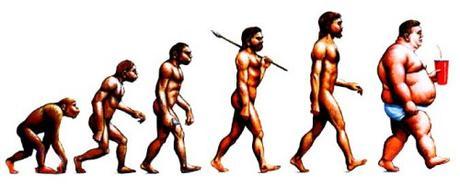
Alan Mozes reports for HealthDay News (via WebMD), Dec. 2, 2015, that young adults who watch tons of TV, and spend more time on the couch than at the gym, may end up paying for it with diminished mental performance in middle-age, new research suggests.
Tina Hoang, a staff research associate with the Northern California Institute for Research and Education at the Veterans Affairs Medical Center in San Francisco, said, “We found that low physical activity and high TV watching in young adulthood were associated with worse cognitive [mental] function” in middle-age. Hoang said that finding was “particularly surprising,” given that the current study pointed to a negative impact on mental function in people who were mostly in their 50s, thereby implying that mental function in people older than 50s could be even more impaired.
Nevertheless, Hoang cautioned that “this is really a preliminary study” and acknowledged that while TV time and physical inactivity seem to be associated with diminished mental ability, the study couldn’t show whether or not such lifestyle factors actually cause mental decline. “More work is needed to really understand this relationship,” she added.
The study findings were published in the Dec. 2 online edition of JAMA Psychiatry.
To gauge the long-range mental health impact of TV and physical activity habits, investigators enlisted more than 3,200 men and women. Study participants were an average of about 25 years old when the study began; 55% were white, 57% were female. More than 90% of the study volunteers had finished high school.
Over the 25-year study, all of the participants completed at least three detailed lifestyle questionnaires, including their physical activity and how many hours a day they spent watching TV.
The study defined “high TV-viewers” as people who watched more than three hours of TV per day during the prior year. Mental capacity was assessed by testing that looked at verbal memory skills, and the ability and speed with which participants were able to plan, organize and perform mental tasks.
Here are the study’s findings:
- 11% of the study volunteers were high TV-watchers who, at middle-age, were more likely to fare poorly on most mental function testing compared with low TV-watchers. The one exception the researchers discovered was that high TV-watchers did not fare worse in terms of verbal memory.
- 16% of the study participants had engaged in low physical activity levels. They were significantly more likely than those ranked high to fare poorly in terms of the ability to think quickly and perform mental tasks.
- Those who were both high TV-viewers and low exercisers had up to double the risk for poor mental performance by middle-age, compared with those who had been both low TV consumers and more physically active during young adulthood.
Hoang said the researchers “did try to control for some confounding factors, such as education, body mass index, smoking and alcohol use. But there may be others that we were not able to account for.”
Susan Albers, a psychologist in the department of psychiatry and psychology with the Cleveland Clinic in Wooster, Ohio, cautioned that, ultimately, “there are too many variables and confounding factors to say that the behaviors of TV watching and a sedentary lifestyle is a direct ticket to cognitive deficits.” However, Albers conceded that “there is no surprise that there is an association” and that the study clearly shows that “what you do in your teens and early adulthood matters. “Young adults often don’t make the connection between what they do now and what happens 25 years from now. This study helps connect the dots.”
~Eowyn

